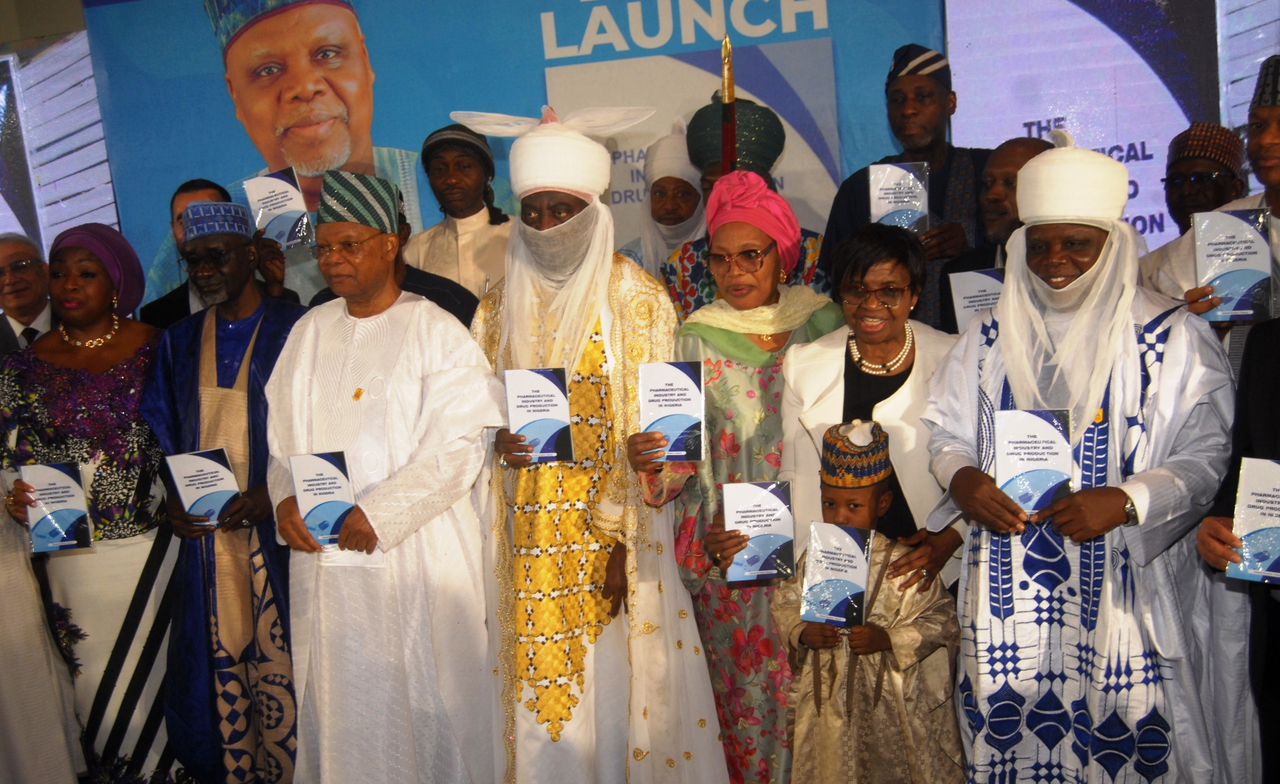Foremost businessman and former Minister of Health, Prince Julius Adeluyi-Adelusi, has tasked stakeholders in the pharmaceutical industry to take up the challenge to promote industrialisation and reduce reliance on drug importation.
Adeluyi-Adelusi, who expressed concern that over 70 per cent of drugs consumed by Nigerians, are imported said this is one of the factors responsible for the depreciation of the naira.
He spoke in Lagos at the launch of the book, “The Pharmaceutical Industry & Drug Production in Nigeria,” authored by Pharm. Ahmed Yakasai, former President of the Pharmaceutical Society of Nigeria (PSN).
The book launch was attended by the Director-General of the National Agency for Food and Drug Administration and Control (NAFDAC), former Kano State governor, Mall. Ibrahim Shekarau, Emir Ado Bayero of Kano, among others.
- NADF to support gender-sensitive, climate-smart agriculture
- World reaches $300bn climate finance deal at COP29
He disclosed that Nigeria has over 130 drug manufacturing companies, a far cry to over 3000 drug companies, and 10,000 manufacturing companies in India, adding that very few of the 130 companies in Nigeria were doing well.
According to him, Nigeria must have a policy to promote industrialisation, especially in the drug production value chain, which must be supported by the stakeholders in the pharmaceutical industries.
He stated that a nation, which continues to depend on importation would lag behind among the comity of nations, saying India is a leader in drug production today because of the determination of its leadership and that Nigeria can do the same.
Adeluyi-Adelusi, who is also a former PSN President and Chairman of Past Presidents of the society, said the book provides an incentive for Nigeria to rethink industrialisation.
He said, “The golden rule in business is that he who has the gold dictates the rules. Other countries are dictating to the African nations, those who have the gold. So Nigerians have to start again to re-enter the industrialisation circuit. If we don’t, the poorer we will get. If we don’t go into industry.
“This book should urge us to participate but heaven helps those who help themselves. The pharmacists have to take care of arrangements to grow the industry.
“More than 70 per cent of drugs we use are imported. Where is that going to take us? If you look at yourself now and ask, or if somebody said, ‘remove from your body all things that are imported,’ everybody would be naked. That is not funny. That is why this book is relevant and if you support and you believe in it, then Nigeria is becoming something more interesting.
“The industry here is doing well, we have about 130 manufacturing units all over the country but very few of them are doing well but India has 3000 drug companies and 10,000 manufacturing companies. We can do something not to let ourselves down. Tell the government that we can do something.”
The NAFDAC DG, prof. Mojisola Adeyeye however stated that there is a significant improvement in efforts to reduce drug importation.
She attributed this progress to strategies promoting local drug manufacturing and encouraged more local manufacturers to produce drugs domestically.
The chief launcher, Dr. Kate Isa, who is CEO of Katchey Laboratories, Lagos, said the drugs being produced by foreigners are not made with blacks in mind and charged Nigerians to start producing their own drugs
Shekarau called on Nigerians to be solution-oriented and do more research. He said, “When you hear the message from the professionals themselves reminding us of the importance of homegrown products, we have a lot of materials that if we are committed to research, I’m sure Nigeria will be great in getting its products.
Yakasai in his remarks highlighted the industry’s reliance on imports rather than exports, which inspired him to write the book. He emphasized that the research and data presented will aid aspiring pharmacists in their manufacturing processes and provide a historical comparison of the industry with suggestions for future improvements.
Yakasai also mentioned that proceeds from the book launch would support the rehabilitation of schools and the provision of basic infrastructure for girls in his community in Kano State. He stressed that educating girls is crucial for national development, noting the high number of out-of-school girls in his community, Yakasai, Kano State.

 Join Daily Trust WhatsApp Community For Quick Access To News and Happenings Around You.
Join Daily Trust WhatsApp Community For Quick Access To News and Happenings Around You.

